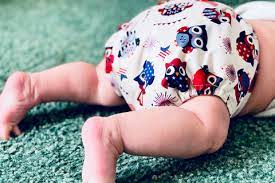Choosing Sustainability: Eco-Friendly Baby Products for a Greener Generation
In today’s world, sustainability has become a key concern for many individuals and families. As our understanding of the impact of our daily choices on the environment has grown, so has our desire to make more eco-friendly decisions. This mindset has influenced various aspects of our lives, including the products we choose for ourselves and our loved ones. When it comes to baby products, many parents are now opting for eco-friendly options to ensure a greener future for their children.
The market for baby products can be overwhelming, with a plethora of choices available. However, by selecting eco-friendly products, parents can make a significant difference in reducing their carbon footprint. Not only are these products better for the environment, but they also contribute to the overall health and well-being of their children. Let us explore some of the eco-friendly baby products available in the market today.

One of the most important choices parents can make is to opt for organic and sustainable clothing for their little ones. Traditional baby clothing is often made from synthetic materials that require significant amounts of energy to produce. These materials may also contain harmful chemicals that can irritate sensitive baby skin. Organic cotton clothing is a great alternative. It is made from natural fibers that are grown without the use of pesticides or synthetic fertilizers. Organic cotton is not only gentle on the baby’s skin, but it also promotes sustainable agriculture practices.
Another crucial consideration for eco-conscious parents is choosing environmentally-friendly diapers. Traditional disposable diapers contribute to mountains of waste that end up in landfills and take centuries to decompose. Luckily, there are now several eco-friendly diaper options available that are more sustainable. Biodegradable diapers made from plant-based materials, such as bamboo or corn, are an excellent choice. These diapers break down more quickly and have a lower environmental impact than their conventional counterparts. Cloth diapers are also an eco-friendly option. By using cloth diapers, parents can significantly reduce waste and save money in the long run.
When it comes to bath time, parents can opt for eco-friendly baby toiletries. Conventional baby washes and shampoos often contain harsh chemicals and synthetic fragrances that can irritate the baby’s delicate skin and pollute water systems. Fortunately, many companies now offer natural and organic alternatives. These products are made from plant-based ingredients and free from harmful chemicals like parabens and phthalates. They are not only safer for the baby’s skin but also gentler on the environment.
Choosing sustainable toys is another crucial aspect of creating an eco-friendly nursery. Traditional toys are often made from non-recyclable plastics and may contain harmful chemicals. Opting for toys made from sustainably sourced and renewable materials, such as wood or organic cotton, is a better choice. These toys are free from toxic chemicals and are more durable. Additionally, wooden toys have a timeless appeal that can be passed down to future generations, reducing waste and promoting a sustainable mindset.
Breastfeeding is an essential aspect of a baby’s early life, and selecting eco-friendly products in this area can be beneficial for both the environment and the baby. Instead of using disposable nursing pads, which contribute to landfill waste, washable cloth nursing pads made from organic cotton can be used. These pads are reusable, reducing waste and saving money in the long run. Furthermore, selecting eco-friendly breastfeeding accessories, such as glass bottles or stainless steel milk storage containers, can also contribute to a greener nursery.
Creating a green nursery means considering every aspect of a baby’s life, including the bedding. Conventional bedding often contains synthetic materials and harmful dyes that can cause allergies or irritate the baby’s sensitive skin. Choosing organic bedding made from natural fibers, such as organic cotton or bamboo, can provide a healthier and more sustainable sleep environment for the baby. Organic bedding is not only free from toxic chemicals but also ensures that the fibers used are grown in an earth-friendly manner.
The Power of Play: How Educational Toys Boost Brain Development
In conclusion, choosing sustainability and eco-friendly baby products is crucial for building a greener and more sustainable future for the next generation. By selecting natural, organic, and renewable alternatives, parents can reduce their carbon footprint and provide a healthier environment for their little ones. From clothing and diapers to bath products, toys, and bedding, there are numerous eco-friendly options available that cater to the needs of both the baby and the environment. Making these conscious choices not only benefits the planet but also instills a sustainable mindset in the baby, ensuring a greener legacy for generations to come.

